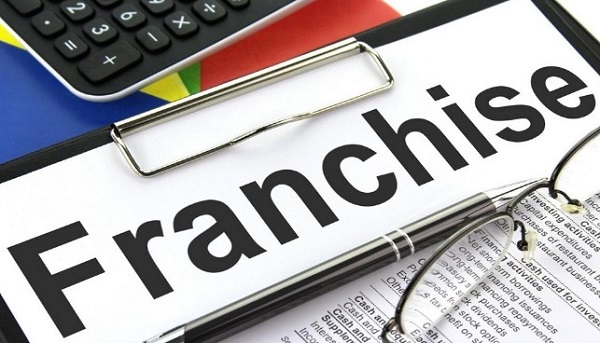Are you considering investing in a franchise? While there are certainly many benefits to owning a franchise, it’s important also to consider the disadvantages of a franchise.
This article explicitly mentions the disadvantages of a franchise and how they can impact your business. From the high initial investment to the lack of complete control over your business, there are several factors to consider before diving into the world of franchising.
Whether you’re a current franchise owner or simply considering the possibility, it’s important to weigh both the pros and cons before making a decision. So, let’s look closer at the potential downsides of owning a franchise and how you can navigate them effectively.
What is a Franchise?
A franchise is a type of business whereby a franchisor (usually the owner of an existing business) allows a franchisee the license to use their trademark, business model, and processes to operate their own version of the franchisor’s business. The franchisor provides the franchisee with support, training, and guidance to help them establish and run the business. In return, the franchisee typically pays an initial franchise fee as well as ongoing royalties back to the franchisor.
Franchising allows entrepreneurs to start a business without building a brand from scratch. It also allows franchisors to grow their businesses more quickly and widely through their franchisees. Major franchises span many industries, from fast food restaurants to real estate brokerages. Franchising is a popular business model, with franchises making up a large sector of many economies around the world.
How Does Franchising Work
Franchising is when two parties agree to work together. One is the franchisor, who owns the business, and the other is the franchisee, who runs a branch of the business. Understanding the difference between franchisors and franchisees is key to determining the benefits and disadvantages of franchising.
A franchisor is someone who wants to expand their business by selling franchises. Think of big companies like McDonald’s or Dunkin’ Donuts. As a franchisor, you give others the right to open new locations using your brand. They follow your rules and systems, and you support them in running their franchise.
On the other hand, a franchisee is someone who buys a franchise. As a franchisee, you’re on the lookout for new business opportunities and want to be part of a brand with a great track record. When you buy a franchise, you invest your money, time, and effort into starting and running a new franchise location.
Whether franchising is a good idea or not depends on who you are, what you want, and whether you’re a franchisor or franchisee. Let’s take a closer look at the pros and cons of franchising.
Franchising Disadvantages
The key disadvantages of a franchise depend on whether you’re an individual expanding your business or someone who’s buying a franchise, so here are these explained:
possible Disadvantages of a Franchisee
Loss of Control
Becoming a franchisee means giving up a lot of control over how to run your business. Franchise agreements impose strict rules and standards that franchisees must follow, limiting their ability to make independent decisions. This lack of control over daily operations and strategic choices can frustrate entrepreneurs who want more freedom.
Financial Investment
Opening a franchise requires significant upfront costs such as franchise fees, equipment, supplies, inventory, real estate, etc. These startup expenses may be difficult for small business owners to finance. Additionally, ongoing costs like royalties, advertising fees, inventory purchases, and renovations can add continual financial strain.
Training and Support
While franchisees need thorough training and support to successfully operate the business, the quality of franchisor assistance is not always sufficient. Without proper initial training and ongoing help, franchisees can struggle to manage all aspects of the business effectively on their own.
Managing Poor Performance
Franchisors find it challenging to deal with underperforming franchisees, so it is among the major disadvantages of a franchise. Since franchisees invest their own money into the business, they may be resistant to constructive criticism about their struggles. Poorly performing locations can damage the brand reputation across the whole franchise system.
Compliance and Regulation
Franchisees must abide by various legal rules and codes of conduct, such as the Franchising Code of Conduct and Australian Consumer Law. Keeping up with regulatory requirements and changes can be an added burden in time and money for franchisees trying to run their businesses.
Limited Innovation
Franchisees typically have little leeway to experiment or try new things that depart from the franchisor’s proven formula. Sticking to the franchisor’s rules and procedures can stifle creativity and make it difficult for franchisees to implement innovative ideas to improve their individual businesses.
Dependency on Franchisor Success
A franchisee’s success is strongly tied to the reputation and performance of the overall franchise system. If the franchisor gets negative publicity or has financial troubles, it can damage the brand image and consumer trust, directly hurting the franchisee’s location and bottom line.
Renewal and Termination Restrictions
Franchise agreements often contain contract renewal and termination clauses that favor the franchisor. This can limit the franchisee’s ability to freely continue operating the business long-term or sell/exit on their preferred timeline.

Disadvantages for the Franchisor
Loss of Brand Control
When other businesses operate under their brand name, franchisors lose some control over brand reputation and consistency. Varying decisions and issues at franchised locations can make the brand look fragmented rather than uniform, diluting the brand image.
Increased Potential for Legal Disputes
The franchisor-franchisee relationship tends to spur disagreements that end up in court. These lengthy and expensive legal battles divert focus from growing the business to resolving franchise contract disputes.
Initial Investment
To start a franchise system, franchisors must make major upfront investments of time and capital to develop the concept, operations manual, marketing plans, legal agreements, training programs, etc. This preparation requires extensive work and often assistance from lawyers, consultants, etc.
Federal and State Regulation
Franchisors must navigate complex government regulations at both the federal level (FTC rules) and individual state levels. Ensuring full legal compliance across all jurisdictions involves extensive effort and is often aided by specialized legal professionals.
Quality Control Challenges
Franchisors struggle to ensure uniform quality standards across all franchised locations, especially if some franchisees fail to follow operational procedures strictly. Inconsistent quality from non-compliant franchisees can dissatisfy customers and gradually erode trust in the overall brand.
Brand Dilution
Expanding too rapidly without diligent quality oversight can weaken a brand as operational standards slip. Poor service or products at some franchised locations reflect badly on the brand as a whole, gradually diminishing its reputation and value in the minds of consumers.
Difficulty in Franchisee Selection
Franchisors must carefully vet and select qualified franchisees who fit the brand identity and values. Inadequate evaluation of potential franchisees increases the risk of mismatch, which can cause problems when operating the business day to day.
Market Saturation Risks
An overabundance of franchise locations in a particular market area makes the brand seem less unique or desirable to consumers in that region. Too much local competition between franchisees paired with waning customer interest can diminish individual location performance.
Advantages of Franchising
The good things about franchising are that it gives you many chances to grow your business and do well in a tough market. So, here are some:
- Franchising enables expansion without financial strain.
- Franchisees are motivated to ensure business success.
- Day-to-day operations are managed by franchisees, allowing owners to focus on strategic tasks.
- Rapid growth is facilitated by franchisee investments and oversight.
- As the franchise network expands, stronger negotiation power with suppliers is gained.
- Established brand recognition attracts customers effortlessly.
- National advertising campaigns enhance brand visibility.
- Comprehensive support and training minimize business risks.
- Franchises demonstrate resilience amidst economic fluctuations.
- Improved bargaining leverage with suppliers results in cost efficiencies.
Final Words
While franchising offers many advantages, like an established brand and system, the disadvantages of a franchise are still for both franchisees and franchisors. Losing control and heavy investment may deter potential franchisees, while franchisors struggle to maintain uniform quality and brand reputation across all locations.
Weighing these disadvantages against the potential benefits can help determine if franchising fits your business goals and risk tolerance. Conduct thorough due diligence and consult qualified professionals to make an informed decision about pursuing franchise opportunities. With realistic expectations, franchise owners can maximize the advantages and mitigate the downsides for a rewarding franchising experience.




